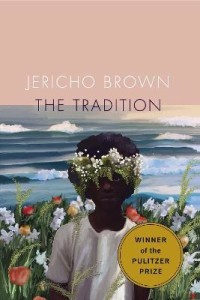
I am astonished by these poems, the power and sheer artistry of them. They are personal and political, specific and universal.
Brown deploys the tools of poetry—enjambment, white space, personification—boldly. Some of the poems take up hardly any space, lines only two or three words long. Yet even with that limitation they are remarkable, the fragmentation creating a rhythm in counterpoint to and with the rhythm of the words.
He uses enjambment more fiercely than I would have thought could work, and by doing so, introduces ambiguity. The end of each unfinished line introduces a gap that invites the reader to leap across it, as Robert Bly described in Leaping Poetry. The reader’s mind begins to fill in what comes next, only to get to the next line and find it something else entirely. Here are the first lines of “Second Language:”
You come with a little
Black string tied
Around your tongue,
Knotted to remind
Where you came from
And where you left
Behind photographs
Of people whose
Names now buck
Pronouncing . . .
Constantly being pulled up like this as we form sentences in our head reinforces the ideas in the poem. It also introduces what Donald Maass terms micro-tension, irresistibly drawing the reader forward. Plus the original thought lingers, a soft echo sounding through the poem.
Brown creates his own tools, complex forms that defy gravity. Some poems are in invented stanza forms, invented indentations, all of which carry meaning. The most outstanding are in the form Brown created: the Duplex. It combines sonnet and ghazal forms: fourteen lines in couplets, where the first line of the couplet is the last line–more or less–of the previous couplet, and the last line of the last couplet is the first line of the poem. Couplets two, four, and six are indented.
Such a form should be impossibly repetitive, but in Brown’s hands each Duplex is an experience like no other: the subtle changes between repetitions, the force of the ideas, and the return at the end, the words the same but the meaning irrevocably changed.
I’m struck by the physicality of these poems. Brown gets at emotion through our bodies, reminding me of Resmaa Menakem’s nonfiction book My Grandmother’s Hands where he locates what Wendell Berry called this country’s Hidden Wound in White and Black bodies, in the trauma held there. See for example these first lines from “Correspondence:”
I am writing to you from the other side
Of my body where I have never been
Shot and no one’s ever cut me.
I had to go back this far in order
To present myself as a whole being
You’d heed and believe in . . .
These poems are all infused with love, even when they are exploring heartache or calling out injustice. Capturing the currents that have been roiling out society in the last few years, and before, the poems may rock you, as they did me, but you will still feel cradled by the love.
What poems astonish you?